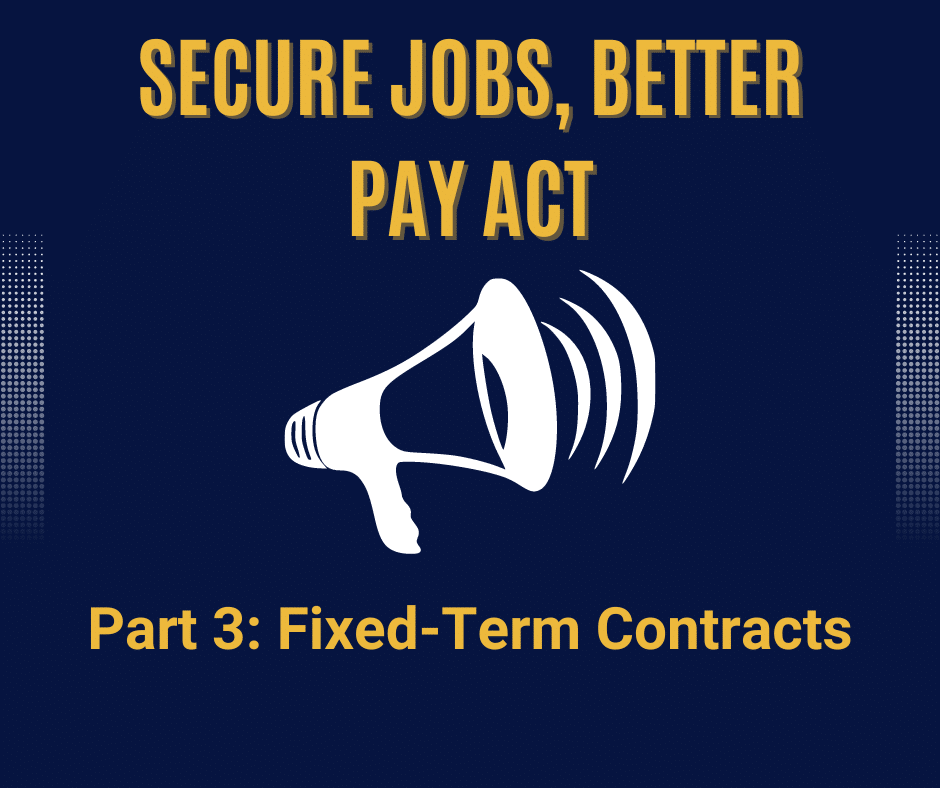The recent Secure Jobs, Better Pay 2022 Act has changes that affects employers and their businesses in significant ways. The Act impacts fixed-term contracts through the imposition of more limiting conditions which will become effect on 6th December 2023.
Fixed term contracts can now only be for less than 2 years and cannot be extended more than once. If these conditions are breached, then the employee will be considered permanent and the expiry date on their employment contract is made invalid.
All other conditions of the contract will still apply, but employee will now have the employment terms that permanent employees are entitled to. This includes things like protections against unfair dismissal, redundancy and the requirement for an employer to provide a notice of termination.
This is deliberate attempt at improving job security for employees, recognizing the fact that more than 40% of fixed term contracts have been going on for more than 2 years. The government want to move more employees into permanent employment. It is also a strategy to reduce the gender pay gap in Australia as more than half the employees on fixed term contracts are women.
There are exceptions in this new legislation that allow the use of fixed-term contracts more than two years, such as:
- apprenticeships or training arrangements
- an employee who earns more than the high-income threshold ($162K p.a.)
- positions wholly or partly funded by government position and the funding is for more than 2 years but with no reasonable prospects of funding renewal at the end of the contract period or a governance position that has a time limit to it
- if the employee is hired to do a distinct and identifiable task or skill
- emergency circumstances or temporary absence of another employee
- a modern award allows it.
Another aspect of change is that from 7 December 2023, employers must give their employees a Fixed Term Information Statement (FTCI) along with the employment contract which will become available later this year. Strong penalties apply for employer non-compliance ($16,000 to $165,000, depending on the nature and severity of the non-compliance event).
If employers still want to utilise fixed term contracts, they should:
- look for the exceptions and see if the business can fit the criteria (listed above)
- have the employee signoff in the fixed term contract that they fit into the allowable exceptions
- update any fixed term contract templates and remove excessive renewal clauses, so they are legally compliant
- examine the composition of the businesses workforce and plan for these fixed term contract limitations
- examine whether fixed-term employees can be moved over to permanent or casual positions
- train up managers on the changes and uses of the new conditions for fixed term contracts
- think about using contractors for previously fixed-term employment positions.
These changes will be significant for a lot of business and there will be many long-term impacts to workforce planning and industrial relations generally.
However, taking the time to prepare your business for these incoming changes will mean everything can keep ticking along when the deadline (6 December 2023) rolls around.
If you need assistance in making these changes to your business or workforce, or if you just want more information on how these legislative changes may impact your business in the future, you can contact us on 0408897079 or suzanne@performanceadvantage.com.au
Suzanne Diprose, Director
Suzanne@performanceadvantage.com.au
0408 897 079





